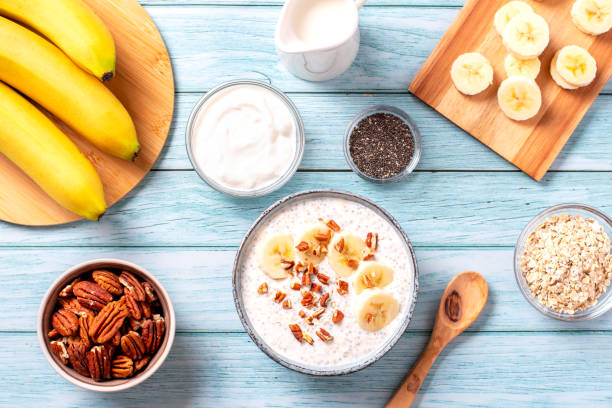Generally, appetite and hunger are signals from your body that it’s craving something or needs energy. Feeling hungry is normal, and your body is simply telling you that it’s time to eat again. But when you’re hungry all the time, well, there’s nothing normal about that. It could be an indication that you’re not getting enough calories or your body is not getting the right food combinations.
If you’re trying to figure out how you can reduce your hunger pangs and cravings, here are some science-backed ways you can try:
1. Eat more protein.
Protein can increase feelings of fullness and also has appetite-suppressing effects. You can get protein from various meats, eggs, beans and peas. It should make up 20–30% of your total calorie consumption so you can reap the health benefits it offers.
2. Go for foods rich in fiber.
A high fiber diet slows digestion and influences the release hormones that regulate appetite and increase satiety. Moreover, fiber helps produce short-chain fatty acids in your digestive system which help encourage feelings of fullness. Some of the best fiber-rich foods include psyllium, chickpeas, lentils, and beans.
3. Drink lots of water.
Drinking water has been found to help suppress hunger and aid weight loss. Scientists say that drinking 17 ounces (500 mL) of water could slightly stretch the stomach which in turn send signals to the brain that it’s full. You can drink a glass of water or two before a meal. Another option is to start your meal with a broth-based soup.
4. Eat more solids foods.
Solid foods (texture-rich foods) has been found to significantly reduce hunger compared with thin and liquid foods. In one study, people who ate lunch consisting of white rice, raw veggies and other hard foods ate fewer calories at lunch and the succeeding meal compared to those who ate soft foods like boiled veggies and risotto.
5. Practice mindful eating.
The brain helps your body recognize when you’re full or hungry. But when you eat too fast, your brain won’t be able to notice any signals. Mindful eating which is eliminating distractions and focusing more on what you’re eating.
6. Eat slowly.
Several studies have found that people who ate quickly are likely to consume more calories. On the other hand, those who take time to chew their food get satiated faster. Newer research also suggests that the rate at which you’re eating can affect your endocrine system, including hormones that control your hunger and satiety cues.
7. Exercise regularly.
Exercise especially resistance and aerobic exercises has been found to reduce activation of brain signals linked to food cravings, hunger, and fullness. Generally speaking, exercise appears to have a positive effect on appetite. So get a gym membership at Fitness Connection and watch your body become fit without worrying about unnecessary cravings.
8. Get enough sleep.
When you get quality sleep, it also helps reduce hunger and prevent weight gain. Sleeping too little sleep on the other hand can increase subjective feeling of hunger and make you more susceptible to food cravings.
9. Manage your stress level.
Chronic stress can raise levels of cortisol, a hormone which is thought to increase one’s drive to eat. Stress also lowers peptide YY, which is the fullness hormone.
10. Choose filling snacks.
Some people like to eat snacks while others don’t. If you have difficulty controlling your appetite and hunger, eating snacks may help. But don’t eat just any snack, you should instead go for those that are high in protein, healthy fats, fiber, and complex carbs like high protein yogurt.
Check out these healthy and filling snack recipes that you can make easily:
